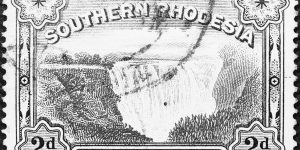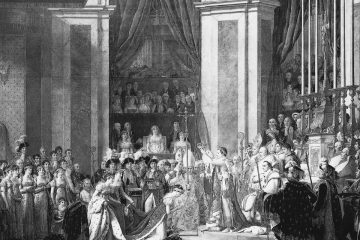What Happened On June 1st?
On June 1, 1980, Rhodesia officially transitioned to Zimbabwe, ending nearly a century of white minority rule. This day officially marked the country’s independence and the establishment of a new government led by Prime Minister Robert Mugabe. The event was celebrated nationwide, celebrating a new era for the nation.
The Foundation Of The Independence Movement
The roots of Zimbabwe’s independence movement stretch back to the late 19th century when British colonialist Cecil Rhodes established the British South Africa Company, laying the foundation for white settler control. For decades, the indigenous African population faced discriminatory laws and economic marginalization. The struggle for majority rule gained momentum in the 1960s and 1970s, driven by nationalist movements led by figures such as Joshua Nkomo and Robert Mugabe.
Mandela’s Influence
Nelson Mandela, imprisoned in South Africa for his anti-apartheid activities, expressed unwavering support for Rhodesia’s liberation movements. Mandela’s resilience and fight against apartheid inspired Zimbabwean freedom fighters and underscored the interconnected nature of struggles across Southern Africa.

Independence Day Celebrations
On June 1, 1980, crowds gathered at Rufaro Stadium in Salisbury (now Harare) to witness the transfer of power. The Union Jack was lowered, and the new Zimbabwean flag was raised, ending British colonial rule and beginning a new era. The event was attended by numerous international dignitaries, including British Prince Charles, who represented Queen Elizabeth II.
Mugabe’s Leadership
Robert Mugabe, who had been a leading figure in the Zimbabwe African National Union (ZANU), was sworn in as the first Prime Minister of Zimbabwe. Mugabe’s journey to this day had been fraught with challenges, including years of imprisonment and guerilla warfare against the Rhodesian government. Despite the contentious nature of his later rule, on this day, Mugabe was celebrated as a leader of liberation, representing the aspirations of millions of Zimbabweans.
Lancaster House Agreement
The path to independence was finalized by the Lancaster House Agreement, signed in December 1979. This agreement, brokered in London, outlined the terms for Rhodesia’s transition to majority rule.

It included provisions for a new constitution, protections for minority rights, and a framework for democratic elections. The agreement also secured a ten-year moratorium on land redistribution, an issue that would later re-emerge with significant political and social impacts.
Role of the OAU
The OAU, established in 1963 to promote unity and solidarity among African states, played a crucial role in supporting Zimbabwe’s liberation movements. The OAU provided diplomatic support, facilitated training for guerilla fighters, and lobbied for international sanctions against the Rhodesian government. Their commitment to ending colonial rule in Africa significantly bolstered the morale and resources of Zimbabwean freedom fighters.
Commonwealth’s Role
The Commonwealth Monitoring Force (CMF) played a distinct role in Zimbabwe’s transition to independence. Deployed to oversee the ceasefire and ensure fair elections, the CMF comprised troops from several Commonwealth nations, including Australia, Kenya, and Fiji. Their presence was necessary in maintaining peace and order during the delicate transition period.
Bob Marley’s Final Concert
Musician Bob Marley starred in Zimbabwe’s independence celebrations, despite losing a battle with cancer. Marley’s song “Zimbabwe,” written in 1978, had become an anthem for the liberation movement. His presence at the independence ceremony underscored international solidarity with the newly formed nation.
South Africa’s Influence
South Africa, under the apartheid regime, was a complex player in Zimbabwe’s road to independence. While the apartheid government initially supported the white minority rule in Rhodesia, the persistent efforts of anti-apartheid activists, including Nelson Mandela and the African National Congress (ANC), put pressure on the South African government to withdraw its support. This shift, along with international sanctions, isolated the Rhodesian regime and hastened the path to independence.

Regional Impact
Zimbabwe’s independence had far-reaching implications for southern Africa. It inspired other liberation movements and put pressure on remaining colonial and minority-rule governments in the region. The fall of Rhodesia bolstered the morale of anti-apartheid activists in South Africa and contributed to the eventual dismantling of apartheid.
Despite the celebrations, Zimbabwe faced numerous challenges after independence. The new government had to address economic disparities, social injustices, and the integration of former guerilla fighters into society. Land reform, promised but delayed by the Lancaster House Agreement, loomed as a critical issue. The task of nation-building was immense, requiring visionary leadership and steadfast commitment to democratic principles.
June 1, 1980, was a day when the people of Zimbabwe took control of their destiny, casting off colonial oppression. The celebrations, speeches, and symbolic gestures all underscored a profound transformation.





